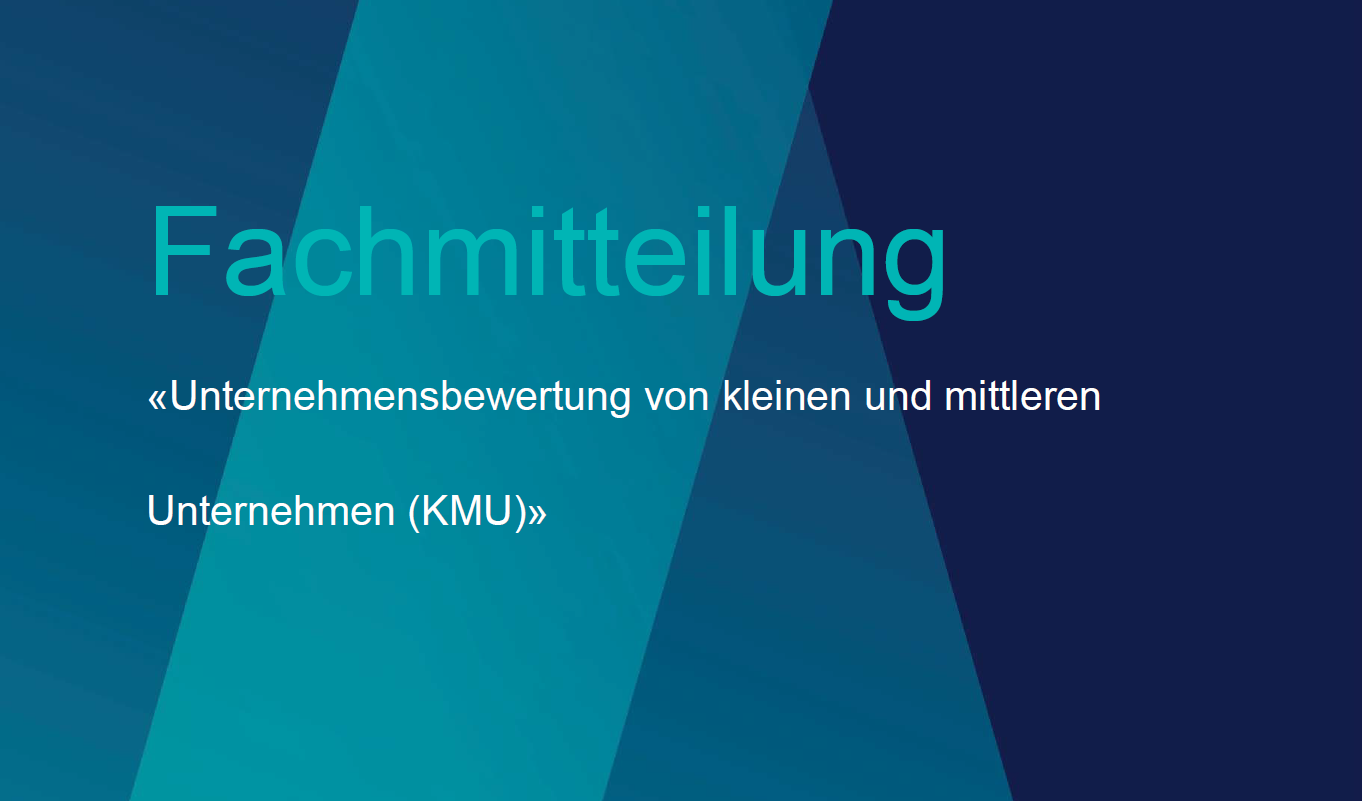The revised “Technical Note on Business Valuation of SMEs” by EXPERTsuisse

Background, application, implementation
Unlike auditing, business valuation is not a recurring and plannable mandate. Nevertheless, the necessary expertise must be up to date and the tools of the trade must be available, i.e. an ideal topic for the professional work of the profession. The first EXPERTsuisse (at that time still the Swiss Institute of Certified Accountants and Tax Consultants) technical bulletin on the subject of business valuations dates back to 1994 and was revised in 2008. In 2018 – this technical communication was fundamentally revised and expanded. The authors of this article carried out this work on behalf of EXPERTsuisse and accompanied the project.
Introduction
Three reasons were decisive for the new version:
- Especially in the valuation of SMEs, the gap between theory and practice is considerable. Now, one can regret the valuation theory that is far removed from reality or lament the valuation practice that is far removed from theory – but one can also build bridges. This is the path chosen by the revised FM 2018: it is based on the current state of valuation theory and shows its application in practice. In doing so, the user should neither be overburdened nor bullied. A binding framework is presented within which the solution of the individual case is at the discretion of the valuer.
- Business valuations must be legally secure, in the interest of all parties involved and affected. The pluralism of methods in business valuation advocated by the Federal Supreme Court up to now does not mean arbitrariness. The line must be drawn where “recognised valuation principles and methods have not been applied or have been applied incorrectly”. The FM 2018 shows this in concrete terms.
- If one looks to Germany and Austria, the profession there has been quite active in matters of business valuation of SMEs. This alone is no reason for activity, but it does show the practitioners’ need for orientation. The new FM 2018, supplemented by checklists, working aids and extensive commentary, not only presents what should be done, but also how it can be done.
Differences to professional pronouncements in Germany and Austria
If one compares the revised FM 2018 with the announcements of the profession in Germany and Austria, it does not stand out with any particularly surprising or creative ideas. However, there are differences – due to the special features in Switzerland:
- Since Switzerland – unlike Germany and Austria – does not have a statutory professional code of conduct for auditors, FM 2018 comments in detail on the requirements for valuers.
- Particular attention is paid to independence. This is already because Switzerland also allows auditors to participate in the facts to be audited within limits in the case of a limited audit.
- In contrast to the hesitant pronouncements in Germany and Austria at this point, the determination of argumentation values is explicitly listed in the valuation functions. It is pointed out that the preparation of “courtesy opinions” is not covered by this.
- Value considerations as a valuation task without a final value judgement are explicitly mentioned and regulated.
- Personal taxes at the level of the shareholder are in principle not taken into account, neither in the financial surpluses nor in the derivation of the cost of capital.
- For the determination of market risk premiums, estimates based on historical capital market data (corresponds to the professional recommendations in Germany) or the use of implicit market yields (corresponds to the professional recommendations in Austria) are expressly permitted.
- Premiums and discounts are widely used in Swiss practice. Accordingly, the FM 2018 allows their use, but requires particular care in their selection and measurement.
The following article goes into the essential contents of the FM 2018, sheds light on the background and presents concrete examples of its implementation.
Read the full article from the Finance and Accounting Yearbook 2019 here (in German).

